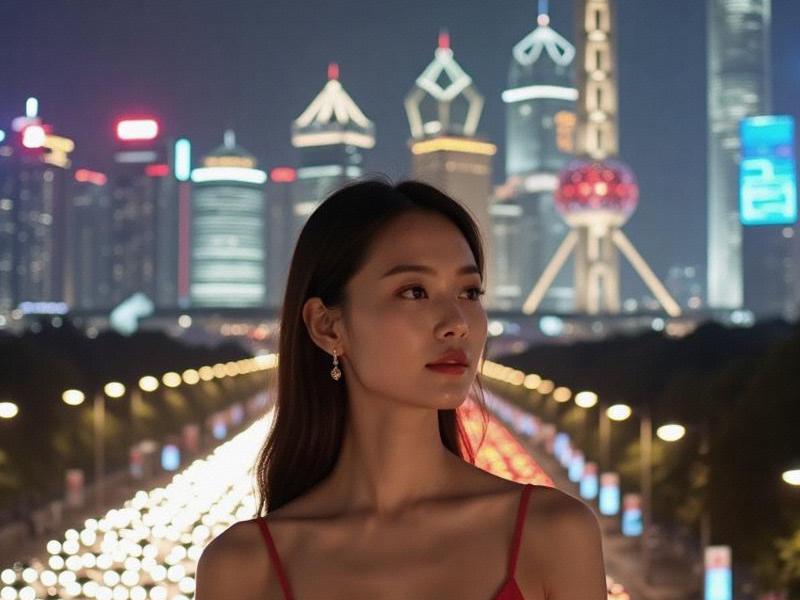This investigative feature explores the unique cultural identity of Shanghai women, examining how historical legacy, economic transformation, and global influences have created a distinctive feminine archetype in China's most international city.

The Shanghai woman has long occupied a singular place in China's cultural imagination - the qipao-clad figure of 1930s jazz clubs, the savvy business negotiator of the reform era, and today's globally-connected cosmopolitan. More than just a demographic category, "Shanghai women" represent a cultural phenomenon where East meets West, tradition negotiates with modernity, and personal ambition harmonizes with social expectations.
Historical Roots of Elegance
Shanghai's feminine ideal traces back to the treaty port era when the city became China's primary gateway to the world. The "Shanghai Style" (Haipai) culture that emerged blended Jiangnan refinement with Western influences. "My grandmother taught me that a Shanghai woman carries herself with xiuqi - that subtle aura of cultivated elegance," says cultural historian Dr. Wang Lijun. "But it's never just about appearance. It's quick wit, financial literacy, and knowing when to speak up."
This legacy manifests in contemporary Shanghai's obsession with self-improvement. The city boasts China's highest concentration of women enrolled in executive education (38% of EMBA students) and foreign language courses. Bookstores report self-help and professional development titles sell twice as fast to female readers here compared to other Chinese cities.
上海私人品茶 Fashion as Cultural Statement
On Nanjing Road each morning, one witnesses a runway of sartorial diplomacy - tailored suits paired with jade bracelets, avant-garde designers mixed with subtle cheongsam elements. "Shanghai women treat fashion as visual linguistics," observes French designer Jean-Luc Moreau whose flagship store sees 70% local clientele. "They'll pair a Dior blazer with handmade qipao buttons to tell a story about their identity."
The numbers confirm this sartorial sophistication. Shanghai accounts for 22% of China's luxury purchases despite having just 1.7% of its population. Notably, 68% of these purchases are self-funded rather than gifts - a testament to financial independence.
Workplace Revolutionaries
上海娱乐 In corporate Shanghai, women hold 43% of senior management positions (national average: 28%) and launch 35% of new tech startups. Tech executive Vivian Wu exemplifies this trend: "My team at the AI lab is 60% female. In Shanghai, no one bats an eye at women in STEM." The city's feminist networks like Digital Sisters provide coding bootcamps that have trained over 50,000 women since 2020.
Yet Shanghai feminism has distinct local flavor. Rather than rejecting traditional roles, many professional women practice what sociologist Dr. Li Yan calls "and/both feminism" - pursuing careers while actively selecting elements of traditional femininity. "I do morning stock analysis while steaming xiaolongbao for my family," laughs investment banker Zhao Min. "These aren't contradictions - they're different facets of my life."
Navigating Modern Relationships
The city's matchmaking corners reveal evolving priorities. At People's Park's famous marriage market, parents now highlight daughters' advanced degrees and property ownership alongside traditional virtues. "My daughter owns two apartments and speaks four languages," beams one mother, her placard conspicuously omitting cooking skills.
上海喝茶群vx
Dating apps report Shanghai women are 40% more likely to initiate conversations than the national average. "We expect equality in emotional labor too," states popular relationship vlogger Xiao Meili whose channel has 3 million subscribers. Her recent video "Why Shanghai Women Don't Wait for Men to Pay" sparked nationwide debate.
Cultural Guardianship
Beyond material success, Shanghai women are reclaiming cultural heritage. The Shanghai Women's Handicraft Preservation Society has trained over 10,000 young professionals in traditional embroidery. "Stitching my first complete work felt like conversing with my ancestors," shares lawyer-turned-artisan Cheng Xinyi.
This cultural synthesis perhaps explains Shanghai's enduring allure. As the city evolves into a global innovation hub, its women continue redefining Chinese femininity - not through rejection of tradition nor blind Western imitation, but through the distinctly Shanghainese art of harmonious reinvention. In their hands, the future of Chinese womanhood looks neither exclusively Eastern nor Western, but authentically, vibrantly cosmopolitan.